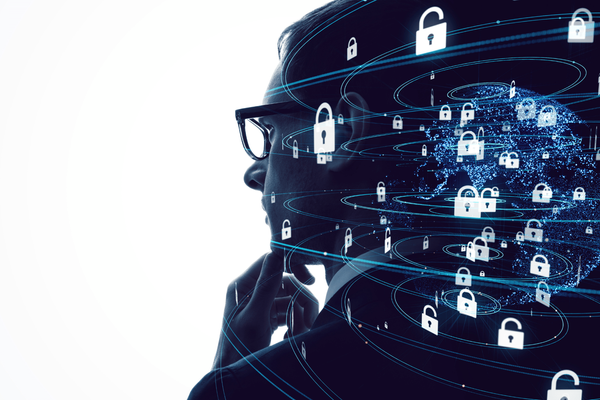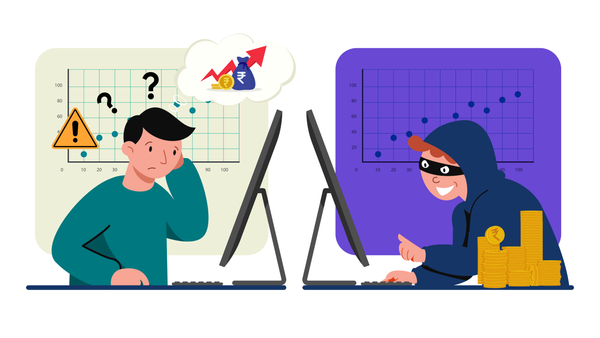Metaverse Cybersecurity

Metaverse is the connectivity of the virtual worlds into the real world with augmented reality, virtual reality, and the blockchain, creating a social connection. The Metaverse is a digital platform that allows individuals to explore virtual space.
The internet is in the middle of being reinvented by the Metaverse, which is at the intersection of augmented reality and virtual reality. The name for Facebook even changed from “Facebook” to “Meta” to make it more relevant to this new technology. There is a lot of hype around “Metaverse” and it is being mentioned more and more in conversations. It will represent what our world looks like in 3D, and be connected on almost every platform.
Role of Cybersecurity in Metaverse
There is a security dilemma in the Metaverse since the amount of sensitive data there is extensive and could translate to issues with data privacy. There is also potential for frequent hacks and cybercrimes. The problem with the Metaverse is that it relies on blockchain technology which cannot be immune from vulnerabilities and lacks a designated moderation team.
The Metaverse, being a virtual reality that houses extremely sensitive data, will be targeted by hackers. There is a strong possibility of hacks and data thefts, which would damage all of the users. Moreover, scams and malware could have an impact on the Metaverse.
It’s still argumentative that this technology will not offer full protection against vulnerabilities. Regarding decentralized control, there will be no way to retrieve stolen or illegally obtained assets if they ever become compromised. Finally, since avatars will be located in this reality and are identifiable only by user name instead of their actual person, it would be almost impossible to track down cybercriminals who may harm its infrastructure. Now you know what we mean!
What does it Involve?
As long as data is being generated, there will be more opportunities for cybercrime with the Metaverse. The continuous rise of cybercrime has warned companies and individuals to protect their online accounts from hackers. The Metaverse brings with it new ways of cyberattacks, in addition to traditional ones, because of its architecture. In the Metaverse, people often use cryptocurrencies and tokens (objects that are specific to a single instance and cannot be replicated). Since they do not hold value as money does, hackers would find them interesting.
It is important to protect your assets because just like on the internet, they are very vulnerable to risks. You need special equipment to enjoy the Metaverse, but it is vulnerable to hackers. Wearable devices, such as headsets, or in the future, could reveal sensitive data. The Metaverse is a new paradigm for the Internet that aims to change how we interact with technology. It’s a connected, 3D world that is accessible through our smartphones and other devices. Through this platform, you can do anything from meeting new people to going on virtual vacations. In this world, you can create your avatar and customize what it looks like down to the smallest detail.
What are the Concerns of the Metaverse?
The lure of virtual worlds is not without its risks. As the number and sophistication of cyberattacks grow, so do concerns over the safety and security of one’s virtual property—one’s avatar, wallet, or online reputation. We will be exploring what some of these concerns are, how people are defending themselves against them, and how to keep your Metaverse property safe.
There are many concerns about cybersecurity. One concern is that the Internet of Things can be used to spy on individuals without their knowledge. This is something that was seen in a WikiLeaks release in August. Another concern is that cybercriminals can use our data to cause us harm, whether it’s through identity theft or through malicious software that gets into our computers and causes them to malfunction and crash.
- The biggest concern of cloud computing is that if the data center is breached, all the information stored in the cloud could be retrieved by hackers. Also, if you don’t have proper backups saved locally, then you lose all your data.
- The Metaverse is a server that stores and handles digital data. It is a very valuable part of many organizations and businesses but can be vulnerable to various attacks like hacking and malware. This is why cybersecurity must be handled with care and caution. The company has to make sure all the data stored in the Metaverse is not leaked or compromised by hackers.
Future of Cybersecurity in the Metaverse
The future of cybersecurity in the Metaverse is not very predictable but has already been discussed many times. This new form of reality may help people be more productive and connected. It can also be used by businesses to save money by providing their employees with a digital workspace. With the rapid expansion of VR technologies in recent years, some experts predict that virtual reality may offer a new frontier for hacking and other nefarious activities. It’s expected that malicious actors will make more use of future VR systems such as Oculus Rift or Microsoft HoloLens to exploit design flaws and vulnerabilities by intercepting data or injecting malware into devices. With the emergence of VR and AR, the time has never been better for hackers to take control of virtual worlds. The only problem is that there has not been a public, accessible company that can provide a secure network for these new cyber threats. Even if companies do step up to become secure network providers for virtual worlds, it doesn’t mean that they will be completely safe from hackers.
Conclusion
The digital world is just as vulnerable to theft and infringement of intellectual property rights. Even if the creator of Metaverse manages to find a way to keep their users’ data secure within a private network, there is still a possibility that someone could hack into their servers. These servers would control all of Metaverse’s data and applications, which means an attack on them could have devastating consequences.
Some believe that it’s a matter of time before hackers disturb the peace, while others think that our society has gone too far with virtual reality. As technology advances, developers and programmers have to keep up with new cyber-attacks.





